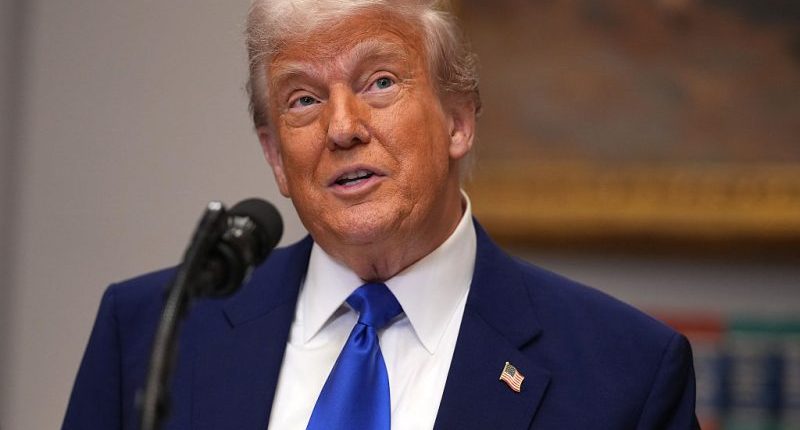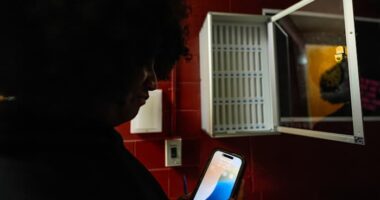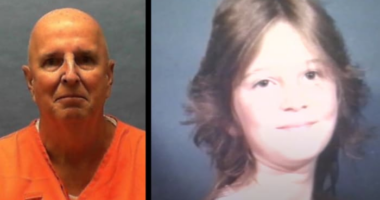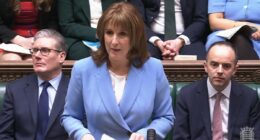Share this @internewscast.com

Editor’s Note: This story contains discussions of rape or sexual assault that may be disturbing. Reader discretion is advised. If you or someone you know has been sexually assaulted, you can find help and discreet resources on the National Sexual Assault Hotline website or by calling 1-800-656-4673.
() President Donald Trump said he would weigh a potential pardon for Sean “Diddy” Combs, whose federal sex crimes trial is underway in Lower Manhattan. The imprisoned hip-hop mogul has pleaded not guilty to racketeering and sexual abuse charges.
“Nobody’s asked. I know people are thinking about it. People have been very close to asking,” Trump said. “I would certainly look at the facts. If I think somebody is mistreated, whether they like me or don’t like me, it wouldn’t have any impact on me.”
Trump further elaborated that he and Combs have not seen each other in several years.
“He used to really like me a lot, but I think when I ran for politics, that relationship busted up. From what I read. I don’t know, he didn’t tell me that. But I read some little bit nasty statements in the paper all of a sudden,” Trump said.
Combs would not be the first celebrity Trump has pardoned. From reality stars to rappers, here are some of the famous faces the former reality star turned commander in chief has given pardons to:
Julie and Todd Chrisley
“Chrisley Knows Best” stars Todd and Julie Chrisley, who were convicted of tax and bank fraud in 2022, received pardons from Trump earlier this year.
Todd Chrisley was serving a 12-year federal prison sentence, and Julie Chrisley was facing a seven-year sentence until their daughter, Savannah, helped to petition for their release to Trump. She told exclusively that the president called her with news of her parents’ pardons when she was entering a grocery store.
Lil Wayne
The rapper, whose real name is Dwayne Michael Carter Jr., pleaded guilty to having a loaded handgun while on a jet in Miami in December 2019. If convicted, he could have spent up to a decade in jail for having a firearm and ammunition as a convicted felon.
Trump gave him a pardon in 2021.
Kodak Black
The rapper, whose real name is Bill Kahan Kapri, was convicted of making a false statement to purchase a firearm. He served part of his 46-month sentence before Trump commuted it in 2021.
Rod Blagojevich
The former Illinois governor was charged with political corruption charges in 2008. Blagojevich began serving a 14-year prison sentence in 2012 and was released from federal prison in 2021 after Trump commuted his sentence in February 2020.
Trump pardoned him fully in February 2025.
White House deputy chief of staff Dan Scavino said in a video posted to X that Trump gave “a full and unconditional pardon for former Illinois Governor Rod Blagojevich.”
NBA Youngboy
The rapper, whose real name is Kentrell Gaulden, was charged with gun-related crimes for possession of a weapon as a convicted felon and was sentenced to a little less than two years in prison in 2024.
Trump granted him a pardon in May 2025.
In a statement online, he thanked the president: “I want to thank President Trump for granting me a pardon and giving me the opportunity to keep building as a man, as a father, and as an artist.”
Jay Johnston
The actor was arrested in 2023 for his participation in the January 6 Capitol riots in 2021. He was caught on video pushing police officers and assisting rioters who were attacking police officers who were guarding an entrance to the Capitol Building. Johnston was charged with civil disorder, which is a felony.
Trump pardoned him along with others tied to the Capitol riots in January 2025.
How do pardons work?
According to Protect Democracy, a presidential pardon can be wide-ranging; however, it does have limitations: “The Pardon Clause makes explicit that pardons may only extend to ‘Offenses against the United States,’ meaning state criminal offenses and civil liability are not pardonable, and that they may not be granted for ‘Cases of Impeachment.’ But these are not the only limitations. As the Supreme Court explains, limitations may otherwise be ‘found in the Constitution.’”
“It’s not easy to get a presidential pardon, far from it,” said Kristin Davis, a former publicist for Roger Stone, who assisted him in receiving a pardon from President Trump in December 2020 after he “found guilty of obstruction of a congressional investigation, five counts of making false statements to Congress, and tampering with a witness.”
The Think Right PR publicist explained to , “The process starts with submitting a detailed application, which includes the official pardon paperwork and ideally as many letters of support or petition signatures as possible. But even a perfect application isn’t usually enough.
“You need to get that packet into the hands of people who have direct influence with the president, like Tucker Carlson or Rudy Giuliani, who can actively lobby on your behalf. There’s an entire behind-the-scenes world built around this, and the people who are most successful at securing pardons understand that it takes more than legal merit. It takes strategy and relationships,” Davis continued.
Davis noted that it took over a year of “persistent lobbying, and we brought in others with strong political connections to advocate alongside us.”
Kermit Roosevelt, a professor at the University of Pennsylvania Carey Law School and David Berger professor for the administration of justice, told that a pardon essentially means the United States is saying the recipient should not have been punished for the crime they were convicted of.
“It relieves a person of all of the consequences of a criminal conviction, and it can be issued before or after a conviction. It just has to come after the conduct that’s being pardoned. Otherwise, there are basically only two limits: the president can only pardon for offenses against the United States (federal crimes, not state crimes), and he can’t use the pardon to undo an impeachment,” said Roosevelt.










